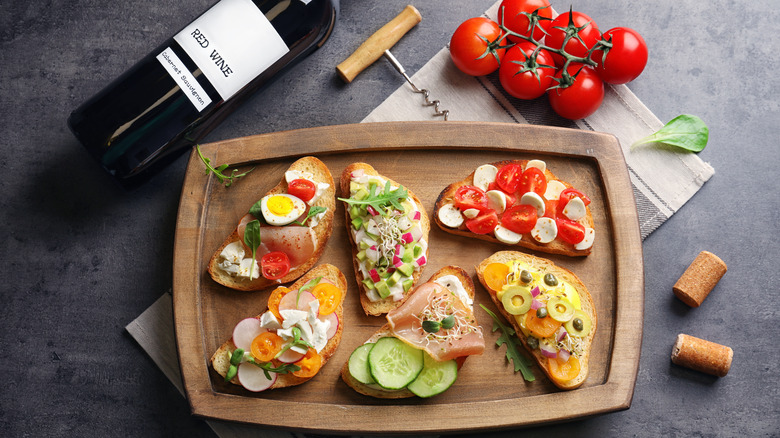The Best Etiquette For Refusing Something At A Dinner Party
Etiquette is important in every dining situation, but it becomes especially crucial at dinner parties. These are often intimate social events where you're interacting with people who matter to you, be it friends, family, or business associates. Making a good impression matters.
It's helpful to keep in mind the basic principles that underpin all etiquette rules when you're at someone else's house: Be respectful of others and considerate of their feelings. Since refusing food could be viewed as disrespectful or insulting — especially when someone has invested time in preparing a dish — it's important to make sure your fellow guests understand your reasons if such a situation arises.
One way to avoid having to refuse food is to disclose your dietary needs to your host in the days leading up to the dinner party. If you still find yourself needing to decline a particular dish, have an explanation ready. If you can frame your refusal as a compliment, or include one afterward, so much the better.
Discuss any dietary needs with your host beforehand
Since every dinner party has a host, it's a good idea to inform them in advance if you have any dietary restrictions, such as food allergies. There's no need to make a big deal out of it — just explain your situation honestly. This will save you from having to provide multiple explanations during the party and will also prevent you from committing an etiquette faux pas. Attending a dinner party without alerting the host to your dietary needs beforehand is considered inconsiderate. Why? Because the host could have potentially prepared dishes that were safe for you if you had informed them in advance.
Now, what if you don't actually have a gluten sensitivity or lactose intolerance? What if you simply don't want to feel obligated to sample every dish or appetizer? In that case, polite refusals, accompanied by explanations, become a social necessity. You should also make an effort to arrive with an appetite so you can at least sample some of the offerings.
Be polite when you refuse food
By accepting an invitation to attend a dinner party, you enter into a social contract that includes certain expectations, such as eating. That said, you're not obligated to overindulge or eat anything you dislike. However, a little tact can go a long way when it comes to declining food.
If you cannot eat a dish due to one of its ingredients, it's perfectly acceptable to say so, but make sure to be polite in your explanation. For instance, you might say, "I'm sorry. I'm lactose intolerant, and my doctor told me I can't have any food that includes dairy. It looks delicious, though!"
It's also helpful to avoid expressing negative opinions about the foods you're passing on. For example, don't say you're declining a dish because you dislike it or its ingredients; that's disrespectful to the person who prepared the food. In these situations, politeness and a liberal use of compliments are your best allies — along with actually sampling some of the offerings, of course.



